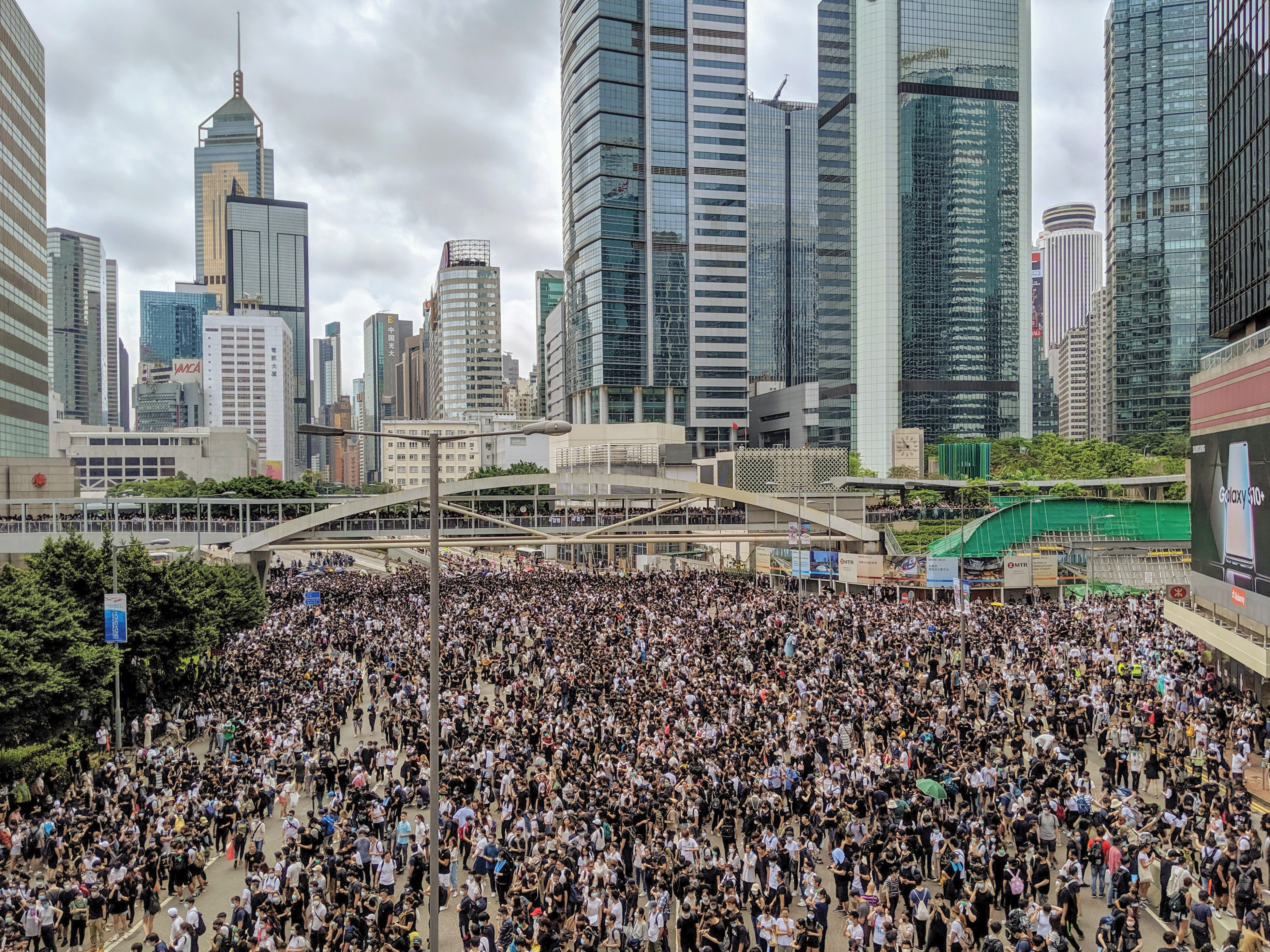The streets of Hong Kong swell with the rage of angry protestors, and that rage doesn’t seem any closer to pacification than it was back when the protests started this past June. Said protestors have a lengthy list of demands and one unified goal in mind: Hong Kong must not surrender its autonomy. Media coverage of the demonstrations has been constant since the protests began, which is quite possibly the only reason the protests have achieved what little they have achieved. Indeed, protest alone may not be enough, but the rest of the world must do its part by continuing to follow the news of the protests so as to apply pressure to China.
To truly understand the reasons for these protests, however, one must first understand Hong Kong’s unique position not only in Asia, but on the global stage. At a surface level, the demonstrations, which have only recently turned violent, are in direct response to a Hong Kong extradition bill, the Fugitive Offenders and Mutual Legal Assistance in Criminal Matters Legislation. Originally purported to have been written with the intent of keeping the streets of Hong Kong safe, the bill would allow Hong Kong to extradite criminals to mainland China. This incited outrage amongst the people of Hong Kong because it is a striking example of China’s growing encroachment on Hong Kong’s autonomy.
For those unaware, Hong Kong had been a British colony for over half a century, originally occupied in 1841 before eventually being turned over to China in July of 1997. This handover sparked outrage amongst the people of Hong Kong, who had by that point developed culturally very different from the rest of mainland China. As a result of fervent backlash, Hong Kong and China now reside under the “one country, two systems” principle, which grants Hong Kong some level of approximate autonomy.
Maintaining that autonomy is proving to be no easy feat. China has always desperately wanted Hong Kong firmly back under its control, and the aforementioned extradition bill is only one example of Chinese President Xi Jinping’s efforts to control the region. In response to the constant protests, local authorities, supported by Beijing, have reacted aggressively, using tear gas, pepper spray and billy clubs to shut down demonstrations.
To make matters worse, there is talk of police potentially working side by side with triad members, which is enough to give even those on Beijing’s side pause. There’s currently no end in sight for the Hong Kong protestors. On their list of demands is that Chief Executive Carrie Lam steps down, but even if she did it would be an empty victory. Another Pro-China leader would soon take her place. With the way the system is currently set up, Beijing is able to screen candidates for the position of chief in Hong Kong, making the election’s process more of a formality than anything else.
Notably, some citizens of Hong Kong have been looking towards Singapore as a sort of lodestar for achieving true independence. The southeast Asian country separated from the Malaysian federation in August of 1965, after a short and tenuous union. Like Hong Kong, Singapore had drastically different political and economic circumstances from its nanny state that made separation necessary, and since separating the country has become a flourishing hub of global trade. It stands to reason, then, that Hong Kong could potentially walk that same path to independence.
Unfortunately, those who believe that Hong Kong is capable of following Singapore’s example seem to drastically underestimate the hold China has on the region. Singapore has the unique position of being left well enough alone by bigger nations. Hong Kong, on the other hand, has always been coveted by their nanny state. China has next to no reason to kowtow to those in the Hong Kong autonomy movement. Hong Kong’s leverage only extends as far as their voices will take them, which might not be very far.
One must not lose hope, however. While the movement may have its shortcomings, such as the lack of a “de-facto” leader, that is not to say that the protests are completely without direction. While there are very few Hong Kongers willing to openly label themselves as leaders of the movement, many older Hong Kongers support the younger protestors in secret, operating behind the scenes.
Still, the Hong Kong protestors rely on media coverage. Carrie Lam did indeed kill the extradition bill, but it is important to note that she likely only did so because of the international buzz the demonstrations generated. If progress is to be made, the pressure (and the coverage) must continue. Hong Kongers can take heart in the fact that their city is an incredibly important one in terms of global affairs and commerce, which is in large part the reason why international interests have been piqued. The region is economically valuable enough to China that the rest of the world can’t help but listen to their cries. The media has been covering the protests for months, which bodes well.
With the way things currently are, Hong Kong could never hope to take a stand against China. The circumstances are looking dire, and the violent protests covered in the current news cycle are a product of said circumstances. The world can only watch as the situation continues to unfold, but that very well may be the only leverage Hong Kong has over China. That’s why the protests, their victories and their failures, must continue to be covered internationally. Hong Kong is drastically different, culturally, from mainland China, and those differences should be allowed to continue to blossom. One can only hope that Hong Kong will be able to maintain their autonomy.








